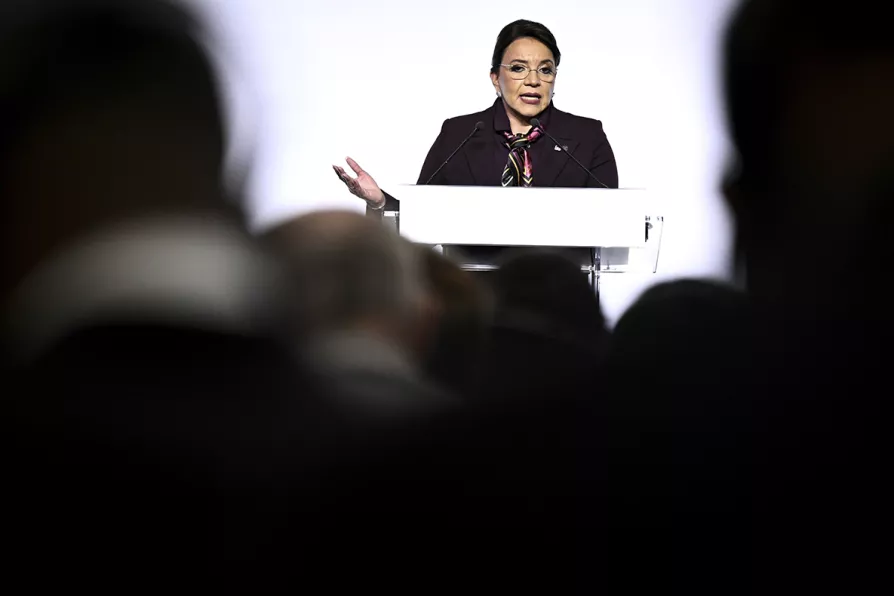
 President of Honduras Xiomara Castro delivers a speech during the first meeting of the Global School Meals Coalition in Paris, October 18, 2023
President of Honduras Xiomara Castro delivers a speech during the first meeting of the Global School Meals Coalition in Paris, October 18, 2023
IN A move to counter continual US meddling in its internal affairs, Honduras President Xiomara Castro decided on August 28 to suspend the US-Honduran extradition treaty.
This was prompted by hostile statements by the US ambassador, Laura Dogu, criticising Honduran government officials for meeting Venezuelan government members sanctioned by the US, specifically Venezuela’s Minister of Defence Vladimir Padrino Lopez.
Meeting with Lopez were General Roosevelt Hernandez, chief of the Honduran armed forces, and the Minister of Defence, Jose Manuel Zelaya.
Following this, Honduran Foreign Minister Enrique Reina reported receipt of intelligence information about a coup plot by some high-ranking military officers — almost certainly linked to the US embassy — to use the US ambassador Dogu’s threats to press Hernandez to resign as chief of the armed forces.
Given the US’s history of destabilising Honduras — not least in the coup of 2009 which ousted the democratically elected president Manuel Zelaya — President Castro went public to deem Dogu’s threats as part of a plan to undermine, and ultimately overthrow, her elected government.
Announcing her decision to suspend the extradition treaty, she promised there would be no more coups d’etat in Honduras, saying: “I will not allow the instrument of extradition to be used to intimidate or blackmail the Honduran armed forces — we are defending our armed forces.”
Clearly, the absolute and sovereign right of the Honduran government to end the extradition treaty with the US should be respected and supported, especially given the proposed nefarious use of it by the US.
President Castro has also brought in a raft of additional measures, fearing “the peace and internal security of the Republic is at risk that a new coup d’etat is being planned.” She added: “A plan to destroy my socialist and democratic government is in motion.”
The president and her left-wing Libre party were elected in 2021 after a succession of corrupt right-wing National Party governments had increased poverty, marginalised communities and spawned widespread violence and repression.
She replaced former president Juan Orlando Hernandez, currently serving 45 years in prison in the US for drug trafficking, along with his brother Juan Antonio Hernandez, serving 30 years. All told, 33 opposition politicians have been convicted or are under investigation in the US for drug trafficking-related crimes.
In a statement, Honduran Security Minister Gustavo Sanchez explained how Hernandez’s regime had operated, to the detriment of Honduran sovereignty:
“The entire state security system was dismantled. They used our territory as a bridge to introduce cocaine into the US, turning it into a paradise for drug traffickers.

The global left must be unwavering in it is support for Venezuela as Washington increases its aggression, and clear-eyed about the West’s cynical motives for targeting it, says CLAUDIA WEBBE

The US is desperate to stop Honduras’s process of social and democratic change, writes TIM YOUNG












